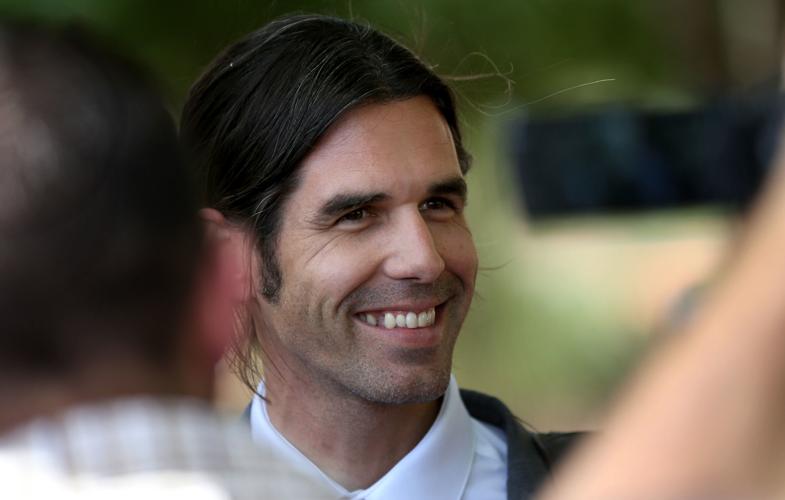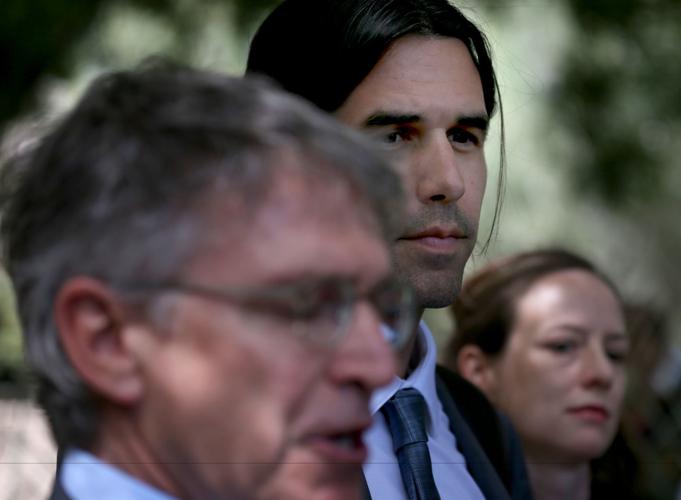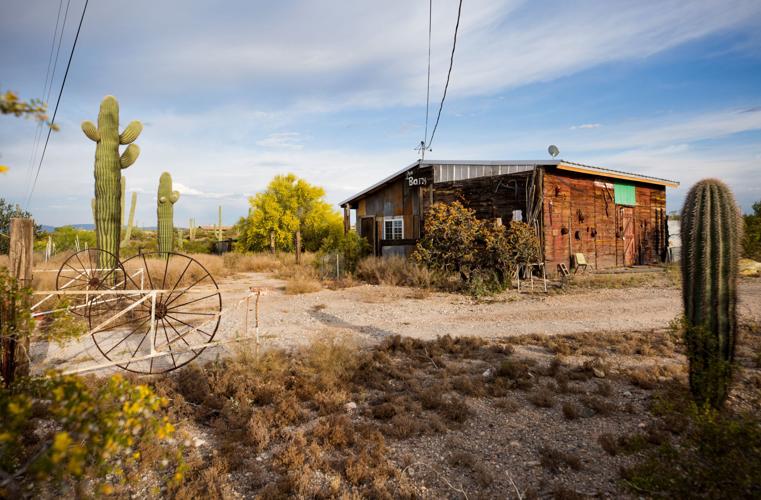Five months after a jury deadlocked, federal prosecutors in Tucson are tightening their focus as they retry a border aid volunteer on smuggling charges.
Rather than accuse Scott Warren of participating in a conspiracy to smuggle two Central American men into the United States, prosecutors on Tuesday said they planned to focus on what happened during four days in January 2018 at a migrant aid station in Ajo.
Warren is a volunteer with the Tucson-based humanitarian aid group No More Deaths.
In his first trial, Warren was accused of conspiring to smuggle a man from Honduras and another from El Salvador after they crossed the border illegally. Warren, a teacher with a doctorate in geography, testified he provided basic medical care and food to Jose Sacaria Goday, 21, and Kristian Perez Villanueva, 23, but barely spoke with them in the following days.
Federal prosecutors had argued Warren was the “hub” of a conspiracy that included a 67-year-old nurse and the operator of a migrant shelter in Sonoyta, a Mexican border town south of Ajo. Neither of them were indicted or charged.
The goal of the alleged conspiracy was to help migrants illegally cross the border and get to Phoenix, as well as “thwart the Border Patrol at every possible turn,” prosecutors argued.
A jury deadlocked 8-4 in June, with the majority favoring acquittal. Prosecutors announced in early July they would retry Warren on two harboring charges, but dropped the conspiracy charge.
In her opening statement to jurors Tuesday, federal prosecutor Anna Wright said the trial would focus on the four days and three nights the two Central American migrants stayed at the aid station, known as the Barn.
The two men asked Warren if they could stay at the Barn because they had lost their camouflage clothing and “needed a place safe from the watchful eye of the Border Patrol,” Wright told the 16 jurors, including four alternates.
She highlighted how the two men “wanted for nothing” while at the Barn. They slept inside, cooked meals, and used their cellphones to take various photos of themselves in the kitchen, common room, and in front of a mirror.
After Border Patrol agents set up surveillance of the Barn, they saw Warren walk outside with the two men and point out landmarks that Wright said were used to guide migrants around a Border Patrol checkpoint north of Ajo.
Agents then arrested Warren and the two men.
“This case is only about Scott Warren and whether he broke the law when he harbored and concealed Kristian and Jose,” Wright said.
Warren faces up to a decade in prison if convicted on both felony harboring charges, but such a long sentence would be highly unusual in Tucson’s federal court. An Arizona Daily Star analysis of about 360 human-smuggling cases in 2018 showed sentences of probation were common for first-time offenders. The longest sentence was less than four years in prison.
Defense lawyer Gregory Kuykendall told the jurors on Tuesday that the prosecution’s case was a “house of cards” based on “false assumptions about Scott’s intent.”
Those assumptions led to a “series of mistakes” and “this prosecution is a culmination of those mistakes,” said Kuykendall, who is representing Warren without being paid.
The agents who arrested Warren were part of a unit that targeted smugglers and their assumptions could be “understandable,” he said.
When the agents saw migrants at the Barn, they assumed Warren was a smuggler, he said. When they saw Warren point to landmarks, they assumed he was helping them get around a checkpoint.
Instead of trying to smuggle the two men, Warren was acting as a “Good Samaritan,” Kuykendall said. He said Warren did what he could so the men would not die, as so many others had, in the vast desert near Ajo that is “bigger than some states.”
Warren “knew the boundaries of the law and he stayed well within them,” Kuyendall said, noting citizens are not obligated to report to the Border Patrol people they suspect are in the country illegally.
Migrants who illegally cross the border through the desert can get blisters on their feet, which leads to an “ugly and predictable scenario that has played out in the desert around Ajo thousands and thousands of times,” Kuykendall said.
The blisters worsen and the migrant can’t keep up with the group, he said. The group leaves the migrant behind. If the migrant doesn’t know where they are or how to find help, they may die.
The Pima County Office of the Medical Examiner has identified more than 3,000 sets of human remains suspected of belonging to migrants who died in the deserts of Southern Arizona since 2001.
Two weeks ago, federal prosecutors asked Judge Raner C. Collins to ban Warren and his lawyers from mentioning the Trump administration or its policies. Prosecutors argued political arguments would not help the jury decide the facts of the case.
On Tuesday, before jurors came into the courtroom, Kuykendall said the prosecution of Warren was an effort by prosecutors to “please their boss,” meaning Trump.
Wright said she and fellow prosecutor Nathaniel Walters were “not the president’s lawyers.” Instead, they are career attorneys with the Department of Justice.
Collins granted their request, ruling on Tuesday that he would not allow politics in this case.
Warren’s trial is the first of its kind in more than a decade in Tucson’s federal court. He also is the last of nine volunteers with No More Deaths who faced misdemeanor charges related to leaving humanitarian aid in 2017 on the Cabeza Prieta National Wildlife Refuge west of Tucson. He is waiting for the verdict from a bench trial in May before Collins.






